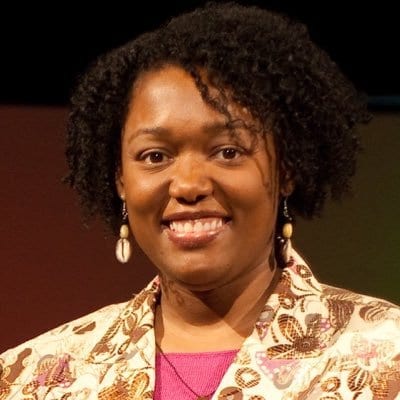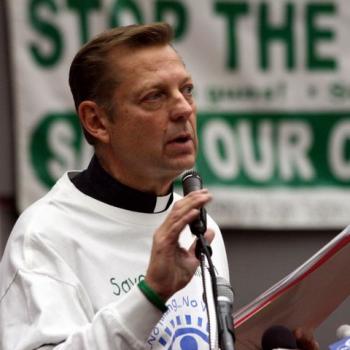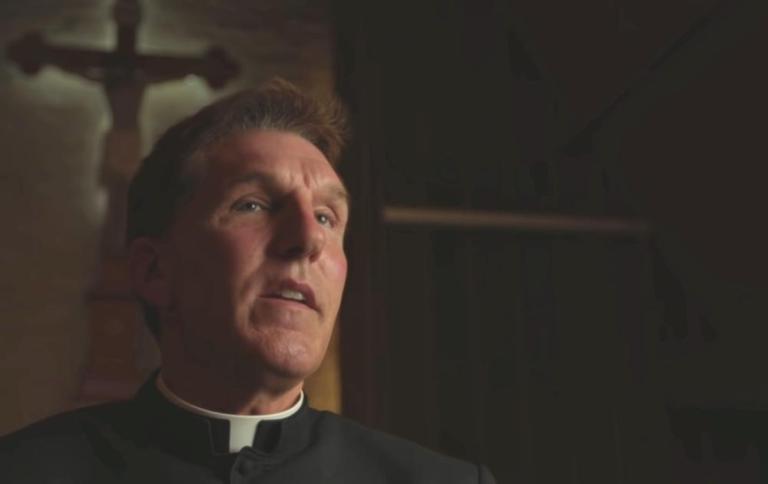
It was a perfect headline.
“The media is not the church’s enemy.”
That simple sentence, which headlines National Catholic Reporter Executive Editor Heidi Schlumpf’s Dec. 3 column, captures an essential truth that too many Catholics, bishops included, do not seem, or want, to grasp.
“The media are not the enemy. We are professionals, trying to do our jobs, in the service of the truth,” wrote Schlumpf, who focused much of her column on how some bishops at last month’s USCCB virtual fall meeting blamed the media for making St. Pope John Paul II look bad for promoting the disgraced former cardinal Theodore McCarrick.
“What I think is unfortunate, though, is the media reports that have come out that have tried to paint St. John Paul II as somehow culpable for all this,” Bishop Thomas Paprocki of Springfield, Illinois, said during a discussion on the “McCarrick Report,” the Vatican’s 450-page dossier on how the former cardinal-archbishop of Washington climbed the ecclesiastical career leader despite widespread rumors, written complaints, and eyewitness evidence of sexual impropriety.
Contrary to Bishop Paprocki’s claim, the news media didn’t need to “paint” the late pontiff as “somehow culpable” for Theodore McCarrick; the Vatican’s own report makes it pretty clear that JPII promoted McCarrick and installed him as the archbishop of Washington despite knowing about the allegations against him. The late Cardinal John O’Connor of New York even wrote to the pope in 1999, urging him not to promote McCarrick, to no avail.
If you are a reporter covering the story or an editor who writes headlines on the copy desk, there is no way to get around the documented facts that prove John Paul II made a grave mistake in deciding to take McCarrick’s word at face value that he had never abused or had sexual relations with anybody in his life. There is no way for a self-respecting journalist to downplay that.
To quote New England Patriots Head Coach Bill Belichick, “It is what it is.”
Blame the Media
The response of some bishops to the press coverage of the McCarrick Report, sadly, reminded me of a lot of what some senior Church leaders, priests and even lay faithful were first saying when the Boston Globe broke open the clergy sex abuse crisis in 2002. I remember hearing members of the clergy badmouth “the liberal media” and “its agenda” to destroy the Christian faith and the Church.
“I don’t read or watch the American media,” a diocesan priest said with some revulsion in his voice during a Theology on Tap presentation I attended in Connecticut in late 2003.
Even today, you’ll find Catholic commentators who expel more energy bashing the press and making excuses for bishops than they do engaging the very real pattern of the ecclesial coverup of the crimes that parish priests committed in sexually abusing children, teenagers and vulnerable young adults.
As a human institution, the mainstream media is not perfect. Reporters and editors get stories wrong and sometimes let their biases or intellectual blind spots improperly color their coverage. When it comes to religion, the Church in particular, most secular newsrooms could accurately be described as indifferent or biblically-illiterate.
But what some critics don’t understand is that without the secular mainstream press, the Catholic Church in the United States would still be leaving too many children vulnerable to predator-priests, whose crimes would continue to be covered up by bishops who would still be more worried about avoiding scandal than dealing with the abuse crisis in a transparent and honest manner.
The secular news reporters who interviewed clergy sex abuse survivors, pored through court documents, confronted predator-priests and grilled bishops showed more genuine concern for survivors than did the institutional Church in the United States. On the clergy sex abuse crisis, non-Catholic journalists in newsrooms across the country were more devoted to truth and justice than were the self-identified disciples of Jesus Christ.
“But if you do not decide in a radical way to be on the side of the children, mothers, families, civil society, you are right to be afraid of us, because we journalists, who seek the common good, will be your worst enemies,” the Mexican journalist and writer Valentina Alazraki said to Church leaders who gathered for last year’s Vatican summit on child protection.
Journalism, not Propaganda, Serves the Church
Because they write about things that we as a society would rather ignore or pretend are perfectly fine, journalists are used to getting angry voicemails, emails and comments underneath their news stories. Some people’s instinct is to shoot the messenger rather than hear anything that might penetrate their ideological silos.
The same is true in the Church. Almost 20 years after the clergy sex abuse scandals landed on our national radar, we still see bishops and senior churchmen who resent the Fourth Estate for reporting critically on the Catholic Church. Looking to dodge accountability, they’d prefer the news media to never report on “negative” stories. If anything, I suspect some bishops wouldn’t mind if the press went away altogether.
Diocesan newspapers across the country have many talented journalists who do great work, but the reality is that most of their publishers – the bishops themselves – won’t let their journalists do the kind of enterprising reporting that would uncover unflattering details about their personal behavior or raise legitimate questions about their leadership.
As Schlump wrote in her above-mentioned column, some bishops seem to think Catholic media should be a public relations wing of the Church. Someone I know who interviewed years ago for a diocesan newspaper job was told, in a straightforward manner, by a chancery official that the publication was “not quite Pravda, but close.”
That isn’t journalism. It’s propaganda, and that does the Church no favors. Consumers of Catholic media deserve the truth, regardless of whether or not it makes a bishop, a popular priest, a respected ministry, or even the pope, somehow “look bad.” When Catholic media pulls punches to not offend the powerful and connected, we all lose.
Much like how the secular press acts as a watchdog over the government, truly independent Catholic media can help keep bishops honest and accountable to their flock, even while reporting on the great work that the Church does everyday to feed the hungry, shelter the homeless, clothe the naked, advocate for justice and nourish people’s souls.
As Catholics, our real enemy is Satan, the father of lies. Journalism, when it’s on the side of truth and carried out in a professional and ethical manner, is compatible with the Gospel. And as we should all know, truth is never our enemy.












